Pakistani Foreign Minister Is In Iran To Boost Ties
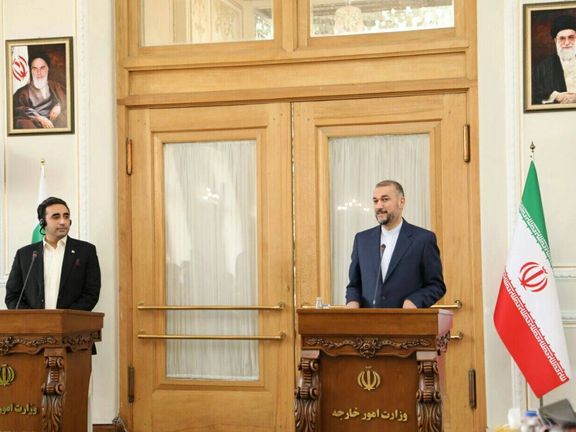
Pakistan’s foreign minister is in Iran and has met with his Iranian counterpart as part of regular high-level exchanges between the two neighbors.

Pakistan’s foreign minister is in Iran and has met with his Iranian counterpart as part of regular high-level exchanges between the two neighbors.
During a joint press conference on Tuesday, Bilawal Bhutto Zardari and Hossein Amir-Abdollahian said they discussed issues of mutual interest such as trade cooperation, border markets, and development of local trade. The top Pakistani diplomat arrived in Tehran for a two-day visit and is scheduled to visit Mashhad on Wednesday.
The two foreign ministers said they also talked about road and rail connectivity and tourism, as well as gas and electricity exports from Iran to Pakistan, adding that they also reviewed regional security issues with a particular focus on developments in Afghanistan and South Asia.
During the press conference, Amir-Abdollahian also touched upon the Vienna talks to restore the 2015 nuclear deal, saying that “Iran has never escaped the negotiating table and we believe that negotiation and diplomacy is the best way to reach agreement.”
The two had met on the sidelines of the World Economic Forum in Davos late in May, calling for bolstering bilateral cooperation. But relations were strained recently over Pakistani allegations of Iranian involvement with a militant separatist group. Among other issues is Islamabad’s challenge to maintain a delicate balance in ties between Iran and Saudi Arabia, whose ties have soured in recent years.
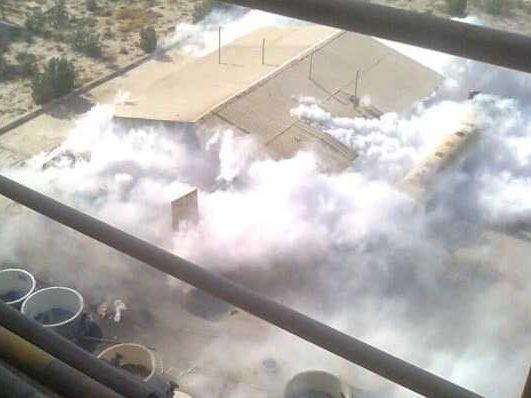
Unconfirmed reports say scores of the workers have reportedly died and many more are injured after an explosion at a chemical factory in southern Iran.
According to reports by Iran’s state media, a leak in an ammonium tank caused a blast Monday evening in the city of Firouzabad in southwestern Fars province but the blaze was quickly extinguished.
The chief of the provincial health department, Vahid Hosseini, claims out of 133 injured who were taken to local hospitals, mostly factory workers, 114 were later released after treatment, but witnesses said in social media that 30 to 70 people have been killed in the accident, some of them instantly.
There are conflicting reports in social media about the cause of the blast, with some saying the tanker was full of nitrogen, not ammonium, hence the high number of casualties.
Director of Fars Governorate Crisis Management Khalil Abdollahi said on Monday night that the accident is being investigated, noting that nobody died.
Authorities reopened a nearby major road that they had closed after the explosion due to the spread of toxic gas.
The factory, which went online in August 2020 with over one thousand workers, is a manufacturer of sodium carbonate, a chemical used to build glass, crystal, detergent, cleaning, water purification and in other petrochemical industries.
Iran occasionally reports fires or explosions at industrial sites that are mainly blamed on technical failures, the result of years of sanctions that have blocked access to new equipment. There have also been many incidents in military sites since mid-2020, with authorities usually blaming Israel.
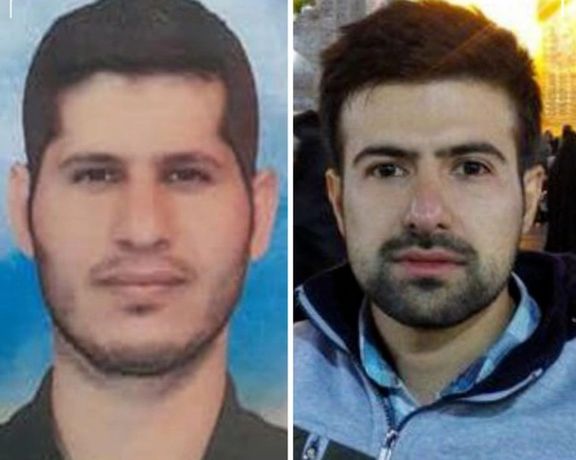
Two IRGC Aerospace Force officers whose deaths were announced Sunday were engaged in "developing arms for Lebanon's Hezbollah," Iran International has learned.
Ali Kamani and Mohammad Abdus, both Revolutionary Guard’s aerospace engineers, "were not killed in accidents" as the Islamic Republic claimed, an informed source told Iran International on Monday.
The two died in separate incidents in two different areas, but the source did not provide further details about the circumstances of their deaths. What was clear from the information received is that the two officers did not die as a result of a car or work place accident.
It is noteworthy that the source emphasized their role in developing weapons for the militant group Hezbollah, which poses a serious threat to Israel with a large arsenal of missiles provided by Iran.
Iranian media first announced that Kamani, a relatively junior officer, died in a “car accident in line of duty” in Khomein, in central Iran.
A few hours later, news came that another aerospace Force officer had also died in the province of Semnan "on lime of duty". Iran's space launch center is located in Semnan. In the reports by the Iranian Media, he was said to be working for the Defense Ministry.
The IRGC aerospace force is tasked with Iran’s missile development and space program. The country has made considerable progress in developing long-range ballistic missiles that can threaten the far fringes of the Middle East, including Israel.
Iran's defense ministry emphasized that both officers died on line of duty and called them “martyrs” without any explanations.
A series of other killings and deaths among IRGC ranks in Iran in recent weeks has led to suspicion that they might have been targets of a secret series of operations, purportedly by Israel’s Mossad.
Considering recent killings of other Revolutionary Guard officers in Iran, some Iranians on social media drew the conclusion that the latest deaths most likely were part of a highly professional anti-IRGC operation carried out with precision.
Last Monday, an Israeli website reported the death of Iranian scientist Kamran Mollapour, who was reportedly working at Natanz nuclear facility in central Iran. This came as conflicting reports were still circulating about the death of Iranian aerospace scientist Ayoob Entezari -- who held a PhD in mechanical and aerospace engineering -- with some calling it an assassination and government saying he died of food poisoning.
The governor-general's office in the central province of Yazd handed a certificate to Entezari's family confirming his "martyrdom", a label the Islamic Republic uses for people who died in the line of duty for the country.
Reports about Entezari’s fate came a day after Iran confirmed the death of a colonel from the Quds Force, Ali Esmailzadeh of the Islamic Revolutionary Guard Corps, the second in two weeks from the unit which allegedly oversees terror operations abroad.
Iranian government and IRGC media said that Col. Esmailzadeh died “in an incident in recent days” at his home without mentioning any details after Iran International quoted sources in Iran as saying that the IRGC killed him over suspicions of espionage. Officials of the Revolutionary Guard told Esmailzadeh’s family that the reason for his death was suicide.
He was a close colleague of Colonel Hassan Sayyad-Khodaei, the acting commander of the elite Qods Unit 840, who was earlier shot dead behind the wheel of his car outside his home in Tehran on May 22 by two gunmen who fled the scene on a motorbike. The sources said that the IRGC became suspicious that Esmailzadeh divulged information about his colleague and decided to eliminate him.
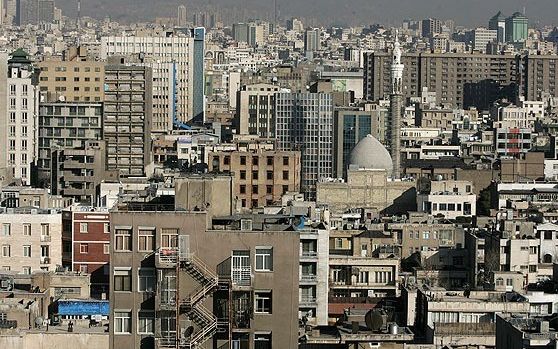
A board member of the Tehran Real Estate Consultants Union says rents have risen 300 percent in the last three years in the capital, with the bulk of this occurring in the last few months.
Abdollah Otadi told ILNA news website on Monday that rents have risen "terribly" in the last few months, forcing many tenants to sell their car or other properties to afford accommodation even in the cheaper parts of the city.
The rent increases are much higher than the 25 percent rate set by the government, he noted, adding that “we are witnessing the relocation of many tenants to the outskirts of Tehran.”
Surveys by the Central Bank of Iran published in January indicated that rents in the capital Tehran have increased by more than 50 percent in one year as annual inflation is hovering over 40 percent.
Home prices rose in local currency because real estate is a major asset protecting savings in a country like Iran where the national currency has lost value almost tenfold since 2017. In countries without an internationally accepted currency, wealth can disappear with devaluation and people rush to protect their capital.
Iran’s rial is hitting new lows against the US dollar daily amid runaway inflation and economic chaos, with one US dollar surpassing 333,000 rials on Sunday.
The drop comes as the last rays of hope for reviving the 2015 nuclear deal between Tehran and world powers are fading away, with multilateral talks in Vienna paused since March.
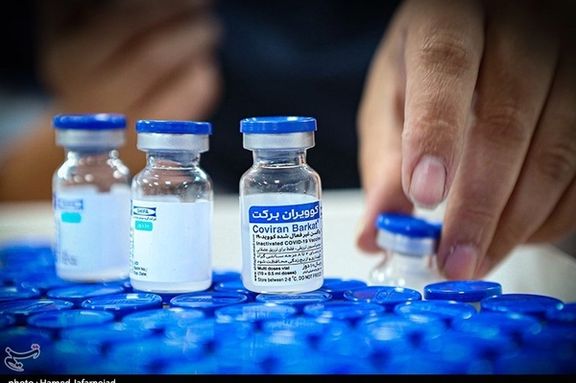
Saudi Arabia has refused to accept 6,500 Iranian Hajj pilgrims who had been vaccinated against coronavirus with Iranian-made Barekat vaccines.
According to Iranian state-owned paper JameJam, they all had to be vaccinated once again with one of the vaccines approved by Riyadh.
After two years of pared-down pilgrimage due to Covid-19 pandemic restrictions, this year Saudi authorities will permit one million Muslims from inside and outside the country to participate. About 40,000 Iranians are set to attend.
Earlier in April, Iran’s national carrier, Iran Air, announced that Iraq does not allow entry to visitors who have received Iranian-made Covid-19 vaccines.
Iraq, with a population of over 40 million, vaccinated 18 percent of its population, short of a 40 percent target set last year by the World Health Organization for January 2022, but has reported about 25,000 deaths. Iran has vaccinated 70 percent and has reported about 141,000 deaths.
Iran has approved at least six homegrown vaccines for production, although some have not completed trials. Most of the 147 million doses administered in Iran are Sinopharm Chinese vaccines, recognized by the World Health Organization.
In January 2021, Iran’s Supreme Leader Ali Khamenei banned the purchase of American and British vaccines, and the state began pushing for homegrown variants.
In September 2021, more controversy ensued when a former member of parliament alleged that Barakat, the most well-connected vaccine developer received one billion dollars from the state in advance and delivered only a fraction of the quantity promised.
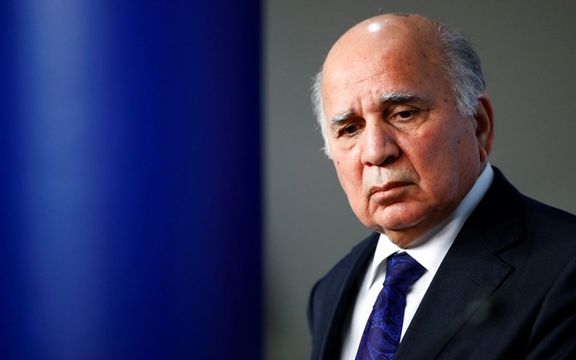
Iraqi Foreign Minister Fuad Hussein has criticized the Islamic Republic of Iran's interference in Iraq's internal affairs, saying Baghdad's tone has changed vis-à-vis Tehran.
In an interview with the Egyptian Alghad TV channel aired on Sunday, he said that Tehran has begun to hear a new language from Baghdad, which did not exist before, noting that Iranian interference in Iraq is “unacceptable."
“These problems regarding Iranian interference whether political or otherwise, we have started talking with the Iranian side differently,” he added.
The Iraqi diplomat said Baghdad’s ties with Iran have passed a level of silence and reached a level of frankness.
“We have told our Iranian brothers that we are geographical neighbors and that will stay...therefore we need cooperation, we do not need interference from Iran. Interference in Iraqi affairs cannot be accepted from any state,” Hussein said.
Lawmakers from the Sadrist bloc in Iraq's parliament resigned on Sunday after their leader, powerful Shiite Muslim cleric Moqtada al-Sadr, asked them to step down amid a prolonged stalemate over forming a government without former Prime Minister Nouri al-Maliki and his Iran-aligned coalition.
On Saturday, Hussein said that Iraq had submitted a formal complaint to Iran for its aggressive behaviors toward Iraq and the Kurdistan Autonomous Region, and denied Iran's allegations that the Israeli Mossad is present in Erbil, stressing that Iran must refrain from attacks on the capital of Iraqi Kurdistan.
“We find it strange that Iran chose the Kurdistan region to respond to Israel,” he said.
In March, Iran fired missiles at Erbil. No one was killed but missiles did damage to some residential buildings. Iran claimed it used 12 ballistic missiles in that attack and targeted an Israeli intelligence center.
Earlier in the day, Iran’s foreign ministry spokesman dodged questions about Tehran’s involvement in last week’s drone attack on Erbil which injured three civilians.